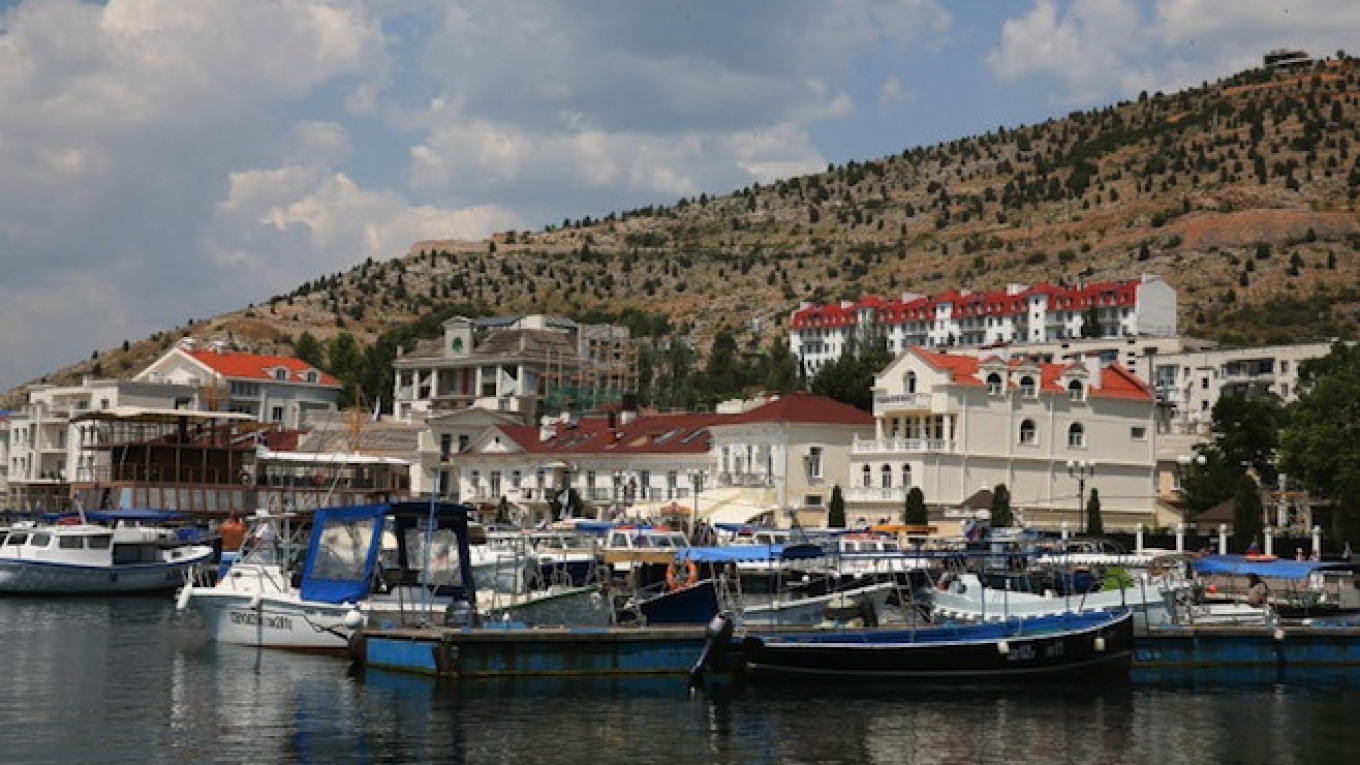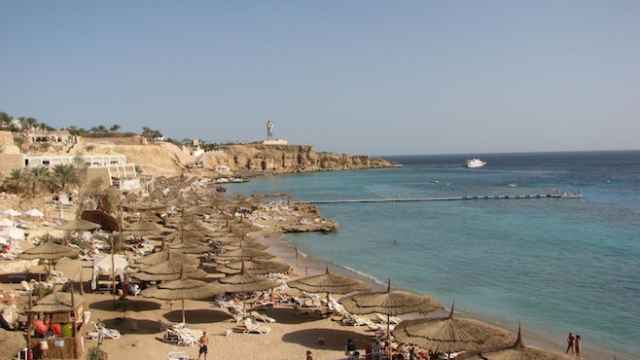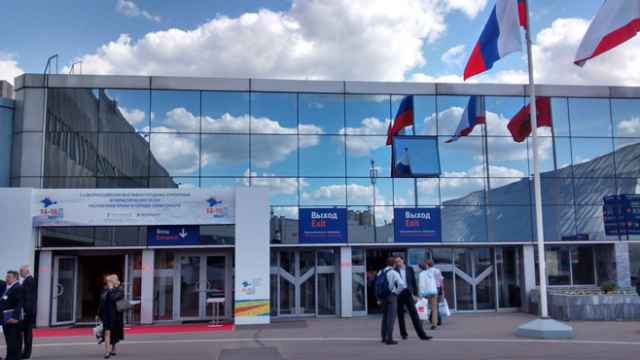Russia is looking forward to a renaissance in domestic tourism as the ruble's devaluation scares Russians away from European destinations and makes prices at home seem ever more appetizing.
The economic logic is unassailable. It used to be cheaper to go to Egypt or Turkey than to resorts of a similar caliber in Russia. Now, with the ruble down 50 percent against the U.S. dollar since last summer, the situation has reversed.
“This challenging economic situation opens up enormous opportunities for the growth of domestic tourism,” Oleg Safonov, head of the Federal Tourism Agency, told news agency RIA Novosti this week.
Safonov is hardly the first official to claim that Russia's current economic crisis will open doors for domestic business, but in this case, the industry agrees.
All tourism experts polled by The Moscow Times this week said that domestic tourism has risen and will continue to grow thanks to the ruble's collapse.
Demand for vacations within Russia grew by 25 to 30 percent last year, said Sergei Romashkin, CEO of tour operator Delfin, which has sold domestic tours to Russians for the last twenty years. This year, Delfin is hoping for a rise of 30 percent or more.
But others cautioned that, as with most sectors of the Russian economy right now, there is a large factor of uncertainty.
“No one knows what the ruble exchange rate will be in a month, in two months, in six,” said Vladimir Kantorovich, first vice president of the Association of Tour Operators of Russia.
Then again, financial pragmatism may not be the only consideration turning Russians back toward their native land.
“There's also a certain patriotism. Many people, taking into consideration some Western governments' relations with Russia, have decided to vacation here,” said Vadim Prasov, vice president of the Federation of Restaurateurs and Hoteliers.
All told, the number of Russians traveling to Europe dropped by 40 percent on average last year, according to Ivor Vucelic, director of product, marketing and IT at the Russian branch of leading European travel group TUI. Turkey and Egypt, which have long been popular beach destinations among Russians, maintained their popularity, he said.
Industry in Transformation
Beyond patriotism and the ruble, key shifts in the industry are also propelling a rise in inward-bound tourism.
Major tour operators are now beginning to operate on the internal market, Vucelic said, and with the government's “recommendation” last year that security and law enforcement officers refrain from travel abroad, they have more potential clients than ever.
The government's informal ban, imposed at a time of heightened tensions with the West over the war in eastern Ukraine, could bring the industry “a few million” additional clients, Vucelic said.
The loss of government clients and the ruble devaluation have also had their negative impact. Nearly 30 tour operators went bankrupt last year, stranding thousands of clients abroad and shaking Russians' faith in the firms that remain.
This year will be another hard one for tour operators as they seek to regain customers' faith in the midst of recession.
Sochi
The former Olympic host city of Sochi is expected to take the gold in attracting the swelling crowds of domestic tourists, defying speculation that the city's swank new facilities would fall vacant as soon as the Games were over.
Sochi, which uniquely boasts a collection of both mountains and beaches, is already seeing an influx of tourists this winter as Russians skiers eschew trips to more expensive European destinations.
Just like most other tourists the world over, Russians flock to ocean waves and sunshine. And thanks to the Olympics, Sochi now has what Russia's handful of other beach destinations lack: top-flight tourism infrastructure and ease of access.
Extensive coverage of the Olympics on national television also served to pique the public's interest in the city, according to Romashkin, CEO of tour operator Delfin.
“All Russian residents saw that the city had changed dramatically and for the better. Tourists aren't only interested in swimming in the sea in Sochi, they want to see the place where the Olympics took place” Romashkin said.
More than 5 million tourists visited Sochi in 2014, news agency Interfax reported. By Romashkin's estimates, Sochi could see 35 percent more visitors this year. Other areas of the southern Krasnodar region are also expected to see a surge in domestic tourism.
Crimea
Like no other Russian destination, Crimea stood to benefit most from the groundswell of patriotism that rose with Russia's annexation of the peninsula from Ukraine in March.
But the Black Sea peninsula is cursed with one intractable obstacle: There is no direct road link from Russia to Crimea. The only roads run through Ukraine, whose relations with Russia have been explosive since the annexation.
Russia is planning to build a bridge across the Kerch Strait at a cost of 247 billion rubles ($3.5 billion), but the project will only be completed in late 2018.
Ferries are currently the only viable transport link between Crimea and the Russian mainland. The number of ferry services was increased from 18 to 50 per day last year to cope with the influx of visitors, but passengers still had to wait in line for hours and sometimes even days.
All told, Crimea managed to draw more than 4.1 million Russian tourists in 2014, RIA Novosti quoted Safonov as saying.
While no meager crowd, they were still not able to compensate for the loss of Ukrainians, who used to account for up to 70 percent of the region's tourism, according to hoteliers.
The peninsula drew a total of 6 million tourists in 2013, news agency RBC reported. The drop is bad news for the region, which has little industry to boast of other than tourism.
Beyond the Beaches
Even beyond the classic resort towns, many regions of Russia could benefit from an influx of domestic tourists more interested in exploring historical cities or roaming pristine landscapes than lying on the beach.
St. Petersburg, Moscow and the Golden Ring are traditional draws for both Russians and foreigners, while nature lovers can look to the Ural Mountains, lake-strewn Karelia and the many nature preserves of the Kamchatka region.
But without the magnetic attraction of sea and sun, the industry's long-standing problems are all too apparent.
The high cost of transportation within Russia is still the main issue, according to Delfin's Romashkin, who has found that the cost of plane tickets is often 50 percent of a customer's total expenditures on a trip.
Transportation options are also severely limited. In the summer, only 30 Russian cities have direct flights to Sochi.
“We have to develop regional aviation. In my view, at least 100 cities should have flights to Sochi,” Romashkin said.
Other major problems include poor infrastructure and a deficit of information on tourism offerings.
In the interview with RIA Novosti, Federal Tourism Agency head Safonov plugged the government's tourism development program, which is focused on attracting private investment and developing infrastructure.
“We will take all necessary measures so that [the Russian] tourist chooses his own country for vacations,” Safonov said, describing outbound tourism as “a form of capital outflow.”
But the tour operator association's Kantorovich was not convinced. The government's plan for dealing with the economic crisis, published this week, dictates 10 percent cuts in nearly all areas of government spending — including tourism.
“Developing any kind of tourism requires money and a big effort, including from the government. Now it's already clear that all the budgets for tourism development are more likely to be cut than expanded,” Kantorovich said.
A Message from The Moscow Times:
Dear readers,
We are facing unprecedented challenges. Russia's Prosecutor General's Office has designated The Moscow Times as an "undesirable" organization, criminalizing our work and putting our staff at risk of prosecution. This follows our earlier unjust labeling as a "foreign agent."
These actions are direct attempts to silence independent journalism in Russia. The authorities claim our work "discredits the decisions of the Russian leadership." We see things differently: we strive to provide accurate, unbiased reporting on Russia.
We, the journalists of The Moscow Times, refuse to be silenced. But to continue our work, we need your help.
Your support, no matter how small, makes a world of difference. If you can, please support us monthly starting from just $2. It's quick to set up, and every contribution makes a significant impact.
By supporting The Moscow Times, you're defending open, independent journalism in the face of repression. Thank you for standing with us.
Remind me later.






